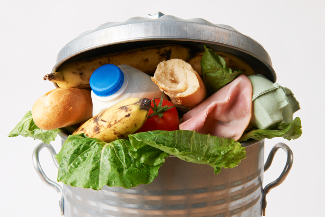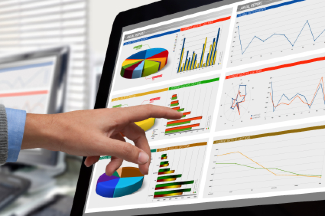Member State Page : Austria
Last updated on the 29/09/2023

In total: 1 201 165 tonnes of food waste in 2021

Food waste according to Article 1 of 2019/1597:
Food production sector: 13.879 tonnes in 2020
Processing and manufacturing: 173.734 tonnes in 2020
Retail and other distribution of food: 84.326 tonnes in 2020 (incl. 70.834 tonnes of edible food waste)
Common kitchens and gastronomy: 201.956 tonnes in 2020 (incl. 151.467 tonnes of edible food waste)
Austrian households: 737.639 tonnes in 2020 (incl. 415.537 tonnes of edible food waste)

National target: Reduction of avoidable food waste along the food supply chain | 50% reduction of avoidable food waste in the retail sector, outside home catering and households by 2030
Other targets: United Nations Sustainable Development Goal 12.3
Target
Austria is committed to reaching the Sustainable Development Goal Target 12.3 to halve food waste at consumer and retail levels by 2030. The target is included in its national action programme Lebensmittel sind kostbar! (‘Food is Precious’), as well as in its national waste prevention programme.
Measure
The Federal Ministry for Climate Action, Environment, Energy, Mobility, Innovation and Technology has commissioned a study to develop the evaluation methodology to fulfil the requirements of the Delegated Decision (EU) 2019/1597 establishing a common EU methodology to measure food.
In general, annual waste data are available in the national waste statistics, which is mainly used for the monitoring of food waste. Mixed household waste was analysed for 2018/2019.
Act
Prevention of food waste is one of the main action areas of the Austrian waste prevention programme, which specifies the objectives and associated measures to prevent food waste for the next few years.
On June 2021, the Federal Government decided to establish a Governance Board of the responsible ministries for the prevention of food waste. The board will propose a national strategy and an action plan with the involvement of key stakeholders.
The national action programme Lebensmittel sind kostbar! (‘Food is Precious’) was launched in 2012, in close cooperation with key players. It is the main strategy against food waste, describing measures in this area, in order to support partners to reduce food waste along the entire food value chain. The measures foreseen in the action programme are in line with the food use hierarchy, prioritising human use over animal feed and the reprocessing into non-food products as part of measures taken to prevent waste generation. An updated action programme is currently under way.
Actions taken under this initiative include:
- Stakeholder dialogues on networking between the various sectors;
- By 2020, about 100 organisations/businesses from all sectors had become cooperation partners in a voluntary initiative and had committed to improving how food is handled;
- The voluntary agreement between the government and the food businesses is led by the Federal Ministry for Climate Action, Environment, Energy, Mobility, Innovation and Technology. The biggest Austrian retailers signed up this agreement and committed to take mandatory and obligatory measurements such as the redistribution of food to social institutions, the development of personal trainings, or the reporting of food waste data;
- Information and awareness campaigns, eg. meaning of best before date;
- Supporting the redistribution of food to social institutions and building the first online private-sector exchange platform for food in Austria;
- Organisation of the ‘VIKTUALIA’ awards – the first Austrian anti-food-waste prize to present positive examples of such actions. The prize has been awarded since 2012;
- There are many regional projects which focus on using foodstuffs which are not suitable for selling due to aesthetic, oversupply considerations etc.
In the food services and hospitality sector, the platform ‘United Against Waste’ for the prevention of food waste in catering, hotels and community catering is supported by a broad network of partners with the common goal of halving avoidable food waste from outside home catering in Austria, by 2030.
In the field of food redistribution, the Association of Austrian Food Banks (Verband der österreichischen Tafeln) in collaboration with major food retailers, have founded an on-line platform to donate food that cannot be sold from supermarkets to social organisations across the country. There is a voluntary agreement with food businesses that encourages the redistribution of food for social purposes, signed by the large retail companies in Austria.
Austria’s Communication Network with Waste Consultants established in 1997, gathering approximately 400 waste consultants, raises awareness on waste management at regional and municipal levels, including on food waste. The network carries out awareness raising activities on food waste prevention through printed materials, advertisements and editorials in printed and social media.
In the context of the International Day of Awareness of Food Loss and Waste, Austria celebrates the action days Nix übrig für Verschwendung (‘Nothing left to waste’ action days), in which a number of stakeholders from the food services sector participates.
Various teaching materials were prepared and technical lectures were held in both public and private schools, for pupils as well as for teaching staff. The Federal Ministry for Climate Action, Environment, Energy, Mobility, Innovation and Technology takes part in the annual fair for teaching staff Interpädagogica and organizes the school competition Abfallvermeidung macht Schule (‘Waste avoidance in schools’).
There are many research and innovation activities, partly supported by national or regional organisations. The Federal Ministry for Climate Action, Environment, Energy, Mobility, Innovation and Technology supports research projects like the EU-funded INTERREG projects STREFOWA and CEWA.
An example of a regional project against food waste is the ‘Genuss Box’, carried out by the Land Vorarlberg and food services in Vorarlberg, a user-friendly box that allows consumers to take home leftover food from restaurants, canteen kitchens and events.
The revision of the national sustainable public procurement action plan and the Eco-label for Green Events take into account the issue of food waste.
There are different possibilities to gain financial assistance in order to implement food waste prevention measures.
